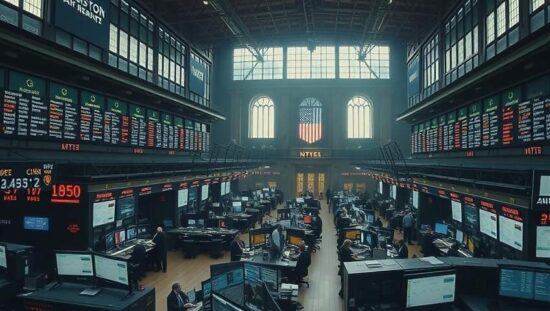The German stock market experienced a significant downturn Friday, with the DAX index closing at 23,567 points – a 0.7 percent decrease from the previous day’s close and a 1.7 percent loss over the entire week. This slide, according to market analyst Andreas Lipkow, is largely attributable to mounting pessimism surrounding the automotive sector, exacerbated by a broader trend of profit-taking across previously high-performing stocks.
Beyond sector-specific concerns, the market is exhibiting increasing fragility, fuelled by geopolitical uncertainties. Lingering tensions in the ongoing trade dispute between the United States and China pose a considerable threat, with the potential to escalate further over the weekend and trigger renewed volatility upon market resumption on Monday. The breach of the 200-day moving average line underscores the deteriorating technical outlook, suggesting that further declines are possible.
This latest dip reflects a growing unease among investors, highlighting the precarious nature of global markets reliant on stable trade relationships and predictable economic indicators. The automotive sector’s struggles, in particular, are raising questions about the long-term resilience of a pillar of the German economy and the government’s strategy for navigating the disruptive forces of the electric vehicle transition.
While the euro strengthened slightly against the dollar, reaching $1.1577 Friday afternoon, analysts caution that this modest gain offers little reassurance in the face of the current market headwinds. The prospect of ongoing geopolitical tension and profit-taking activity suggests that the DAX may find support in the 23,000 to 23,400 point range in the short term, but sustained recovery requires a significant easing of global trade and political uncertainties.





